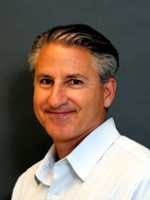02 Aug Medical School Curriculum Aims To Overcome Physician Bias Against Obese Patients
MedicalResearch.com Interview with:

Dr. Gayer
Gregory Gayer, PhD
Associate Professor
Chair of Basic Science Department
TUCOM California
MedicalResearch.com: What is the background for this study? What are the main findings?
Response: The prevalence of obesity in the United States continues to be a growing and remains a major health concern. Closely associated with obesity is an extensive list of chronic diseases, including hypertension, dyslipidemia, and type 2 diabetes. Unfortunately, physician bias against obese people may create a self-defeating environment that can produce less effective communication in a manner that could reduce the patient’s willingness to participate in their own health. Our overall goal is to prepare future physicians to appropriately engage the obese patient in order to optimize health care delivery.
This study was initiated in response to the ever increasing demand on the medical profession to properly care for the obese patient. We demonstrated that medical students have the same inherent bias as other health care providers and this bias can be sustainably reduced by education. We hope that this reduction in bias shown in medical school will enable students to be better prepared to address the concerns of their obese patients and ultimately translate into better clinical outcomes for them.
MedicalResearch.com: What should clinicians and patients take away from your report?
Response: Many schools from primary to professional have used the curricular events to reduce bias of all types. Our study focused on a comprehensive curriculum that emphasized health rather than weight per se when addressing the obesity epidemic. Using this approach we were not only able to statistically improve bias but we were able to sustain that improvement over all four of medical school.
MedicalResearch.com: What recommendations do you have for future research as a result of this study?
Response: This was the first phase of our study. During the second phase we intend to package the material into online-learning modules to enable transport to other medical schools and residency programs and then determine if a reduction in bias through this method also occurs. The third phase of this study will be to determine if learning modules provided in medical schools and residency programs can reduce bias towards obese patients. The ultimate goal of this study is to determine if the reduction in bias can produce measurable differences in patient outcomes.
No disclosures
MedicalResearch.com: Thank you for your contribution to the MedicalResearch.com community.
Citation:
Gregory G. Gayer, Jennifer Weiss, Michael Clearfield. Fundamentals for an Osteopathic Obesity Designed Study: The Effects of Education on Osteopathic Medical Students’ Attitudes Regarding Obesity. The Journal of the American Osteopathic Association, 2017; 117 (8): 495 DOI: 10.7556/jaoa.2017.099
Note: Content is Not intended as medical advice. Please consult your health care provider regarding your specific medical condition and questions.
[wysija_form id=”5″]
Last Updated on August 2, 2017 by Marie Benz MD FAAD
